
Lights for Live Streaming and Video Broadcasting Beginners(Part.2)
Many people think that having a quality camera and an expensive lens will help you create a quality looking stream, but most of the impact is made by a great lighting setup. So, as a live streamer, you want to have a cinematically lighting setup that illuminates your face perfectly while you’re still able to personalize your vibe.
In the previous article, we discussed how to choose the lights, and now we'll focus on how to arrange your lights.
What many novice streamers don’t know: it is more important to know how to position the lights.
As you might have noticed, there’s more than one way of setting up lighting for your live stream. It all depends on what kind and how many lights you have. But if you want your entire setup to show on the screen, you’ll need more powerful light sources.
First of all, we want to make sure that our new lighting setup is made of LED lights. This is because, among other light sources, LED lights are known to consume less power, give brighter light, give off little heat, and can dim better.
Therefore, a little bit of help from more advanced light technology is necessary. For example, Yuji SunWave™ creates a full spectrum light that achieves 98% similarity to the visible part of sunlight and reaches industrial high CRI up to 99. The white color under SunWave™ full spectrum light is as pure as under sunlight.
The best overall lighting setup for live streaming is a three-point lighting setup: one configured as a key light, while the other two function as a fill light and a back light. But there are still many other ways of lighting setup.
2.1 Single lamp-key light
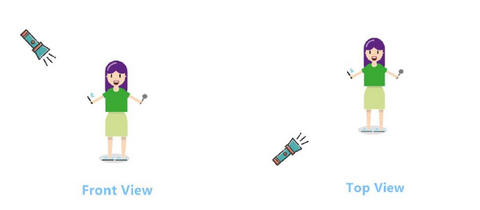
To set a single light is simple. It is often used in video shooting of single-person appearances in the media and is dominated by low-key backgrounds. Usually, it is more suitable for review, popular science, and explanation videos. When a single lamp is distributed, the lamp is arranged at a 45° angle in front of the side of the character. The lamp position is high above the head and is buckled down 45° to illuminate so that the lighting effect is more hierarchical.
Such a single lamp lighting is very simple and easy to use for daily video shootings and single person online entertainment broadcasts.
2.2 1+1 lamps-key light and ring light
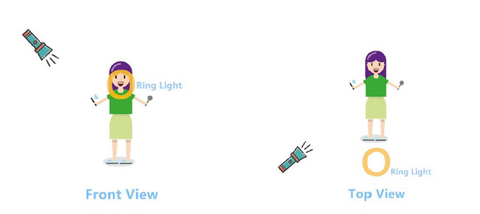
The reason we call it “1+1” instead of "dual light lighting", is that it emphasizes the effect of one main light and one decorative light. The decorative one is to modify the character's face or eye, which will make the finishing touch.
With a ring light, you attach your camera or smartphone inside the ring, after which the light illuminates the subject from all angles, neutralizing shadows. This setup is designed to illuminate one specific subject and is mainly meant for Instagram or TikTok videos.
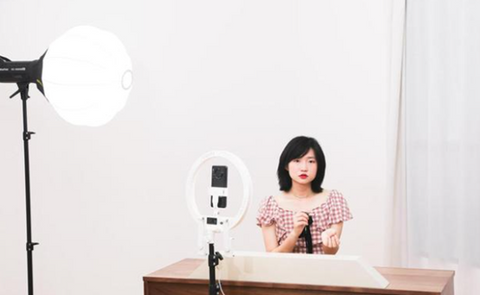
2.3 Dual lamps-key light and fill light
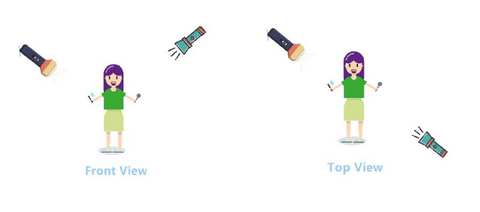
The double lamp lighting design is diagonal lighting, one main light and one auxiliary light/contour light. Similarly, both lights have to be placed around the characters, and the environment lighting is not taken into account, so it is also a low-key style.
The main light continues the single-light lighting style, and then on the diagonal of the main light, that is, the side and rear of the character, add a lamp to the character to play the side backlight, and lighting from the diagonal position can balance the light ratio while diluting the shadow area of the main light. It can give people a brighter outline, and the characters are separated from the background, making the picture rich and varied.
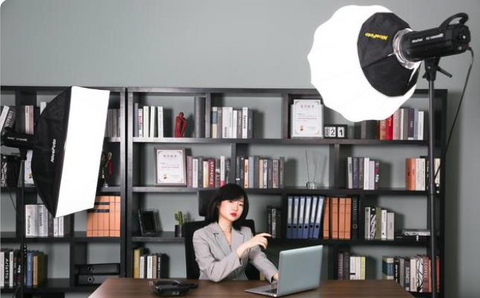

Leave a comment